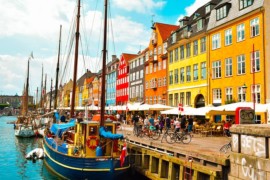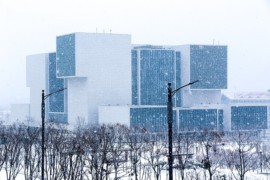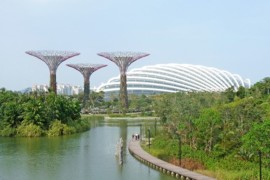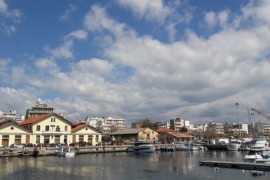The Stockholm Conference on the Human Environment first opened its doors on the 5th of June, 1972. Since then, the United Nations Development Programme initiative for Environment (UNEP) celebrates World Environment Day (WED) every year on June 5. The slogan of this year’s 34th edition of the event, hosted by Italy, is “7 billion dreams. One Planet. Consume in moderation.” Here, DHC News will take the opportunity to review in detail UNEP’s initiatives for developing heating networks.
Celebrating Man and the Environment
In 1972, the Stockholm Conference led to the creation of the UNEP – United Nations Environment Programme. This organization aims to address environmental issues and encourage policies to improve the quality of life without compromising that of future generations. Through World Environment Day, the United Nations seeks to bring a more human dimension to environmental issues.
The actions around this event take place in the context of the World Expo, Expo Milano held this year from June 1st to October 31st. Over 140 countries and several international organizations are represented at the event- including the UN. This international event, celebrated every June 5 in over one hundred countries, is the main lever used by the United Nations to bring about collective awareness: it is urgent to take action to preserve our planet; what would it look like if each of the 7 billion people that populate it promised to change a part, however small, of their daily life?
Moving towards sustainable and responsible consumption
Lasting change can only be brought about by fundamentally modifying energy consumption habits. The establishment of heating networks powered by renewable energy (geothermal, biomass, cogeneration …) is a key action which the UNEP wants to encourage across the planet on World Environment Day. However, this international event is not the only action which the United Nations Environment Programme uses to promote heating networks.
In reality, the UNEP highlights two specific aspects of district heating systems: their economic interests and energy efficiency, which reduces investment. To support its recommendations (developing and modernizing heating and cooling networks), the United Nations, through UNEP, in collaboration with the Copenhagen Centre for Energy Efficiency, ICLEI issued a report on the 25th of February entitled “District Energy in Cities: Unlocking the Potential of Energy Efficiency and Renewable Energy”. This report underlines the important role that heating and cooling networks play in cities in their energy transition. Cities represent 70% of the total energy consumption in the world and almost half of greenhouse gas emissions. The UNEP report shows that the transition of urban areas to district heating and cooling networks could halve the consumption of primary energy and contribute to reducing emissions of greenhouse gases by 60% before 2050.
We must therefore rely on district heating and cooling networks in the coming years, both for environmental and economic reasons. Such is the recommendation supported, in any case, by the United Nations, through the United Nations Environment Programme.
Image source: www.unep.org







